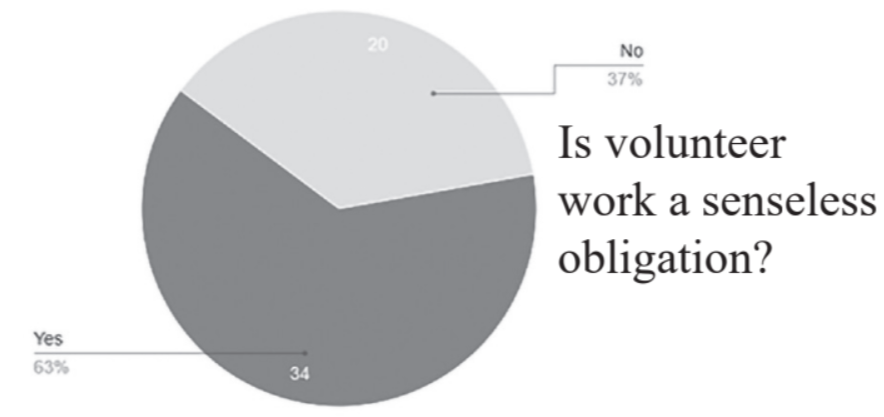
Celebrities have a responsibility to use their social media to speak about issues that personally matter to them, rather than being obligated to use their platforms to post about trending issues to appease the masses.
“They should post something they genuinely care about, so their followers can see that they truly care about what they’re promoting,” said senior Maxwell Kennaugh.
While posts on trending issues don’t automatically equate to negative intentions, performativity often taints online activism. When celebrities make quick, singular posts about trending topics, their actions are likely to be perceived as performative. A lack of genuine concern surrounding such issues and the desire to maintain positive appearances leads celebrities to post without prior thought and education.
“I agree that sometimes celebrities’ posts can be performative,” said junior Ixchel Palma. “Maybe they don’t actually care, and sometimes they just repost and forget that they are who they are and that their voice has a lot of power to it.”
An additional issue with celebrity performative activism is the spread of misinformation. In an Instagram story at the very beginning of the Israel-Hamas conflict, singer Justin Bieber reposted an image of what he thought to be destruction caused by Hamas in Israel overlaid with the text “Praying for Israel.” The story was quickly deleted after the image was instead revealed to be destruction in Palestine due to Israeli bombardment.
“Some celebrities spread misinformation and then take the post down without even making a statement, like how Justin Bieber did,” said senior Andy Ramzy. “I think they should take their time [before posting] once a new social issue breaks out or an existing one resurfaces.”
Instead of a quick post whenever a new issue is trendy, posting about issues that hit close to home accounts to utilizing social platforms responsibly and avoids the common pitfall of performative activism.
“If someone has the fame and acknowledgement of a celebrity, I think it is even more important for them to advocate for something important to them,” said senior Sarah Ewell. “The fact that someone is a celebrity who reaches a large audience can have a large impact.”
It is pertinent that responsibility is not mixed up with obligation. The Merriam-Webster dictionary defines responsibility as “moral, legal or mental accountability,” while obligation is defined as “something one is bound to do.” Celebrities are not obligated to post anything they do not wish to, as no one on social media is. Rather, they have a responsibility to use the advantage of millions of followers to spread awareness on issues that matter to them.
“A celebrity saying something is really important, even if they can’t change what’s happening,” said Ramzy. “They can still sway public opinion.”
Football player Colin Kaepernick did it best. While his activism against police brutality extended beyond the screen, his background as a transracial adoptee and mixed-race NFL player informed his passion for racial equality. Celebrities don’t have to be directly connected to an issue to be passionate about them, but in this case, Kaepernick’s personal proximity to the issues he spoke up for communicated to the public the authenticity of his advocacy.
With this being said, celebrities are not void of the role of posting about social issues they aren’t specifically invested in. Spreading awareness about issues of any category, especially current events, is just as impactful if done correctly.
“I don’t think celebrities should dip their toes into every single issue because I feel like that could be taxing on them, but they should if something is really important, like the situation in Palestine,” said Palma. “But before posting, they should research what’s happening so they are not taking it as a face-value trend.”
If social platforms are to be used for activism, it is best they are utilized in a way that achieves maximal impact. While celebrities are bound to face backlash for whatever way they choose to use their social media, posting about issues of personal relevance helps celebrities emit genuinity with a decreased chance of performativity, increasing the public’s perceptiveness to what they choose to speak out about.
“I honestly think that celebrities who speak out get more backlash than the ones who don’t, and that’s just because you can never make everyone happy,” said Ewell. “But if they are informing others about something they believe in knowing they may receive backlash for it, I think that is very brave and kudos to them.”






